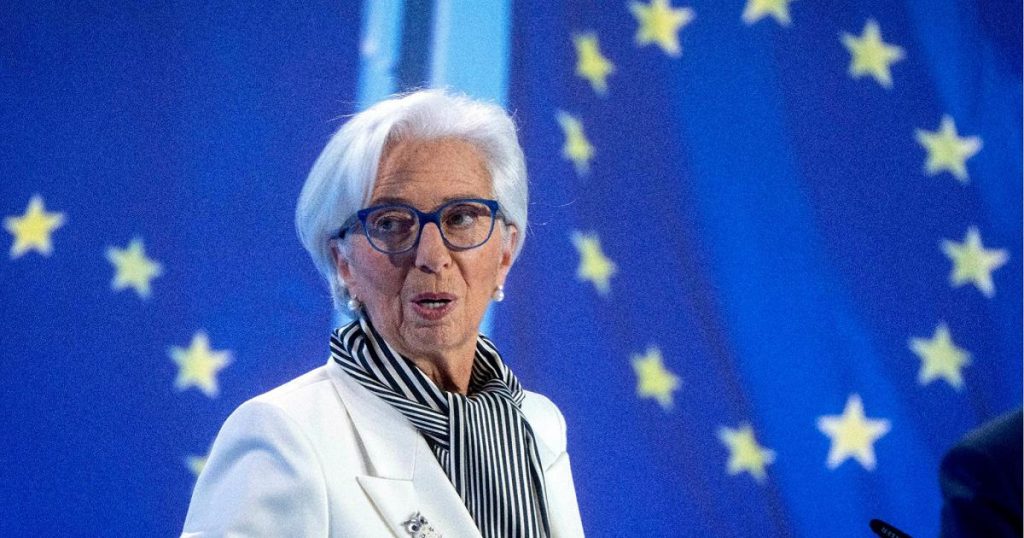The European Central Bank has decided to leave interest rates unchanged. The main refinancing rate remains at 4.50%, the deposit rate at 4%, and the marginal lending rate at 4.75%. This decision marks the fourth pause in a cycle of ten consecutive rate hikes that began in July 2022. The ECB’s Governing Council believes that the current interest rates are at levels that, if maintained for a sufficiently long period, will make a substantial contribution to bringing inflation back to the target of 2%. Future decisions by the Governing Council will ensure that the reference rates are set at sufficiently restrictive levels as long as necessary, and will continue to follow a data-driven approach in determining the appropriate level and duration of the restriction.
The ECB has revised down its inflation forecast for the euro area compared to December projections. According to the new estimates, inflation is expected to reach 2.3% in 2024 (down from 2.7% previously), 2% in 2025 (from 2.1%), and 1.9% in 2026. Growth estimates for 2024 have also been lowered to 0.6% (from 0.8% in December). Economic activity is expected to remain moderate in the short term, before growing by 1.5% in 2025 and 1.6% in 2026, initially supported by consumer spending and later by investments.
Following the ECB’s decision to keep interest rates steady, European stock markets have reacted positively, with slight gains and a decrease in government bond yields. The euro has fallen to 1.0882 against the dollar. In Europe, Madrid (+0.7%) and Milan (+0.3%) are performing well, with Paris (+0.1%) also showing positive movement. London (+0.02%) and Frankfurt (+0.01%) are relatively stable. The spread between Italian and German bonds has decreased to 130 basis points, with the Italian 10-year yield falling six basis points to 3.57% and the German yield at 2.27% (-5 points).
The ECB’s decision to leave interest rates unchanged has been met with approval from European stock markets, which have responded positively. The central bank’s revised inflation and growth forecasts signal a cautious approach to monetary policy, with a focus on supporting economic activity while keeping inflation in check. The slight gains in stock markets and decrease in bond yields suggest that investors are reacting favorably to the ECB’s decision. The euro’s depreciation against the dollar also reflects market dynamics following the announcement.
Overall, the ECB’s decision to maintain interest rates at current levels while revising down inflation and growth projections for the euro area indicates a balancing act between supporting economic recovery and controlling inflation. The central bank’s commitment to a data-driven approach in determining monetary policy suggests a cautious and deliberate strategy to navigate the uncertain economic landscape. With European stock markets responding positively and government bond yields decreasing, the markets are showing confidence in the ECB’s measures to support economic stability and growth. As the euro continues to fluctuate against other major currencies, the effects of the ECB’s decisions will continue to be closely monitored by investors and policymakers alike.


